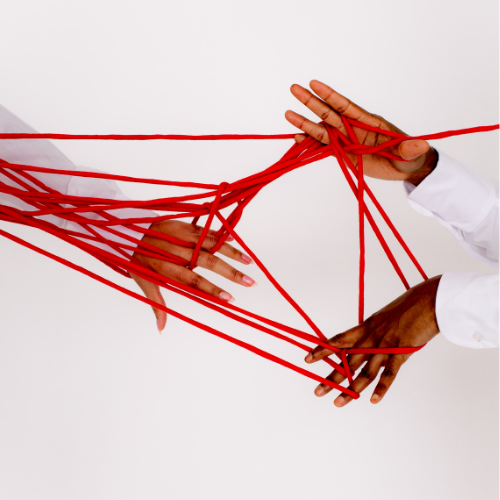The effects of depression on interpersonal bonds can be disastrous. Depressed persons can either place the responsibility for their suffering on themselves or their spouses.
It’s unsettling to see them transform into distant, accusatory aliens. Why, after all that time spent together, would they suddenly claim that they aren’t in love or that they’ve never loved their relationships?
There is a risk that depressed lovers will not address the emotional turmoil that is destroying their happiness. Instead of getting help, they blame themselves and their current relationship. Their typical response is to uproot their lives and start over somewhere else.

Although the particular effects of depression in every given relationship will vary, this is by far the most common issue I hear about and have experienced firsthand.
Furthermore, most people are unaware of this distinction; instead, they typically categorize depression as either “clinical depression,” which requires professional help, or “normal depression,” which affects virtually everyone at some point in their lives. Depression is both a symptom and a cause of other problems, making it hard to understand.
According to the medical community, depression is a mood illness characterized by an overwhelming sense of sadness and a loss of enthusiasm for things that one once enjoyed.
Feelings, thoughts, and actions are all impacted by depression, making it difficult to go about normal living. Numerous factors contribute to the development of depression, and some of these factors remain mysterious.
Whether you are in a romance or not, the following seven forms of depression are equally likely to affect you:
Table of Contents
- 0.1 1. MDD (major depressive disorder)
- 0.2 2. Chronic Depressive Disorder (also known as PDD)
- 0.3 3. Bipolar Syndrome
- 0.4 4. The Blues After Giving Birth (PPD)
- 0.5 5. Mood swings before menstruation, often known as premenstrual dysphoric disorder (PMDD)
- 0.6 6. SAD: Seasonal Affective Disorder
- 0.7 7. Normal Depression
- 1 How Do Relationships Impact Depression?
- 2 How Does Depression Impact Love Relationships?
- 3 Is Tehe Connection The Source Of The Problem?
- 4 Ten Suggettions For Dealing With Relationship Depression
- 5 Ways In Which Partners Can Assist
- 6 You And Your Mental Healith
- 7 Relatively Healthy Breakup Advice
- 8 Focus On Safety
- 9 Experiencing Mixed Emotions After A Breakup
1. MDD (major depressive disorder)

Major depressive disorder (MDD) is the mood illness most people mean when they talk about “clinical depression.” MDD is characterized by a few important criteria.
- Depressed state
- A disinterest in formerly enjoyable activities
- Weight gain or loss
- Sleep disturbances
- Exhaustion
- Guilt and feelings of worthlessness
- Irregular attention span
- Depression, hopelessness, and a desire to end one’s life
An MDD diagnosis is commonly made if these symptoms persist for more than two weeks.
2. Chronic Depressive Disorder (also known as PDD)

Dysthymia, now called persistent depressive disorder, is a form of long-term depression that has persisted for at least two years. Intensity ranges from moderate to extreme.
Occasionally, people with depression will feel better for a couple of months, but this improvement is usually temporary. Although the symptoms are less severe than those of major depressive disorder, they persist and last for an extended period of time.
Consistent with PDD, the following symptoms may be present
- Depressed feelings
- Loss of enjoyment and enthusiasm
- Possessing high levels of annoyance and anger
- Anger and remorse
- Inadequate sense of one’s own worth
- Trouble getting to sleep or staying asleep
- Having difficulty waking up
- Despair and helplessness
- Tiredness and a lack of vigor
- An alteration in one’s hunger levels
- Difficulty focusing
Medication and talk therapy are common components of treatment for chronic depressive illness.
A recent study by the National Institute of Mental Health found that 1.6% of American adults had a long-term depressive illness. Researchers predict that roughly 1.4 % of all U.S. people will suffer from the disorder at some point in their lives, with women being affected more frequently (1.9% vs. 1%).
3. Bipolar Syndrome
Mania is a state of unusually heightened mood that is characteristic of those who suffer from bipolar disorder. These episodes can range from being moderate (hypomania) to being so severe that they severely disrupt a person’s life, require hospitalization, or alter the person’s perception of reality. Individuals with bipolar disorder almost always suffer from major depressive episodes as well.
Depression is a mix of mental and physical symptoms. The most noticeable ones are a low mood that lasts for a long time and losing interest in things that used to be fun.
- Sleeplessness, sluggishness, and general exhaustion
- Psychomotor restlessness and unusual bodily pains
- Despair and a diminished sense of self-worth
- Temper tantrums and nervousness
- Lack of focus and disarray
If you have bipolar disorder, your risk of suicide is almost 15 times higher than the average person’s. In extreme circumstances, psychosis (containing hallucinations or delusions) may emerge.
4. The Blues After Giving Birth (PPD)
Hormonal changes during pregnancy can have a profound impact on a woman’s emotional state. Postpartum depression often begins after giving delivery, but it can also begin during pregnancy.
Postpartum depression (PPD) goes beyond the baby blues and is officially categorized as depression with postpartum period start.
Mood swings, anxiety, and impatience are normal after having a baby and can linger for up to two weeks. When compared to regular depression, PPD symptoms seem to be more intense and continue for much longer.
Possible signs and symptoms include
- Sadness, a lack of happiness
- Extreme shifts in mood
- Isolation
- Bonding issues with your newborn
- Alterations in appetite
- Helplessness and despondence
- Disappointment in formerly pleasurable activities
- A sense of inadequacy or worthlessness
- Stress and panic disorder
- Suicidal ideation or attempts
- Suicidal ideation
Postpartum depression (PPD) can range from a lack of motivation and melancholy that won’t go away without medical intervention to postpartum psychosis, in which the person also has disorientation, hallucinations, and delusions alongside their mood episode.
It can linger for up to a year if not addressed. Fortunately, antidepressants, counseling, and hormone therapy have all been shown to be helpful in studies.
5. Mood swings before menstruation, often known as premenstrual dysphoric disorder (PMDD)

Premenstrual syndrome (PMS) is characterized by a wide range of unpleasant physical and emotional manifestations, including irritability, exhaustion, anxiety, moodiness, bloating, an increase in hunger and food cravings, pains, and sore breasts.
PMDD, or premenstrual dysphoric disorder, has comparable symptoms, however the emotional ones are more pronounced.
Some of the symptoms of premenstrual dysphoric disorder are
- Constant and severe exhaustion
- Sadness, hopelessness, or harsh self-criticism
- Extreme nervousness or tension
- Extreme shifts in emotion, including frequent crying
- Irritability
- Focusing difficulties
- Urges to eat excessively or binge
6. SAD: Seasonal Affective Disorder
Seasonal affective disorder (SAD), also known as major depressive disorder with repetitive patterns, occurs when a person experiences symptoms of depression, drowsiness, and weight gain during the winter but otherwise feels good throughout the spring.
Light that enters the eyes alters this cycle, and any periodic fluctuation in the night/day sequence can create a disruption, resulting in depression. A theory supports the idea that SAD is produced by a disruption in the natural circadian cycle of the body.
Since SAD typically remains untreated and unreported, it is difficult to calculate accurate prevalence statistics. The incidence rises as one moves away from the equator. An estimated 1% of Floridians suffer from SAD, but in Alaska, that figure rises to 10%.
Seasonal affective disorder (SAD) is more prevalent in the world’s extreme north and south, and is often addressed with light treatment to compensate for the periodic loss of daylight.
7. Normal Depression
Do you exhibit depressive symptoms (such as overeating, excessive sleeping, or hypersensitivity to rejection) but perk up in response to a good event?
These symptoms may lead to a diagnosis of atypical depression (modern nomenclature refers to this condition as depressive disorder with psychotic symptoms), a form of depression that differs from the “normal” presentation of the condition. Symptoms of atypical depression include those that are:
- Overeating and/or gaining excessive amounts of weight
- Lengthy slumbers
- Weakness, exhaustion, and a general sense of being “weighed down”
- Hypersensitivity to the feelings of rejection
- Extremely emotional reactions
Despite what the label “atypical” might indicate, atypical depression is generally quite prevalent. Antidepressants classified as monoamine oxidase inhibitors may be more effective for those with atypical depression than other types of depression (MAOI).
How Do Relationships Impact Depression?
Relationships bring both happiness and sadness. People’s psychological well-being may suffer as a result of this.
The following are some circumstances that could put further strain on an already depressed couple’s relationship:
Infidelity:
Another potential source of trouble in a partnership is infidelity. When a partner in a private relationship cheat, both partners may feel shame and betrayal. To say the least, this can be hard on the feelings.
In the same way, a case study done in 2012 found that cheating on your partner can make you more likely to have suicidal thoughts and PTSD-like symptoms.
Also, a 2016 study found that people who were already prone to depression were twice as likely to get depressed if they knew their partner was cheating.
Abuse:
New incidences of severe depressive disorder in women were linked to multiple types of intimate relationship violence, according to a study from 2020. Those males who had been abused were more likely to acquire anxiety.
Abusive behavior is much more prevalent than you might think, even if it may seem extreme at first. This is particularly the case of several forms of emotional abuse, such as:
- displaying traits of possessiveness, control, or manipulation
- actions taken with the intent of physically or emotionally breaking someone down.
- Separating a person from their loved ones
- Read on for additional information about recognizing the warning signs of emotional abuse.
Dating across the country:
Long distance relationships can indeed be rewarding, but they often have their difficulties. Separation from a spouse can cause longing and worry about the future of a relationship.
Dissolution of a Relationship
Major life shifts and challenging feelings like hostility, loneliness, and grief can result from the end of a meaningful relationship.
It may also necessitate leaving one’s house, which may mean leaving behind one’s children or other pets.
How Does Depression Impact Love Relationships?
Relationships can be negatively impacted by depression in a number of ways. Such as the following, depression impacts:
The person:
Tiredness, a lack of interest in spending time with their partner, and a loss of enthusiasm for activities that they once enjoyed doing together are all symptoms of depression. Alterations in mood, including a boost in irritability, are a possible side effect of depression.
Depression’s negative effects on a couple’s bond can trigger feelings of guilt or shame. They can feel that they’re a burden on their partner or that they’re at fault for their symptoms. Since this is the case, it may be hard for the person to express their emotions.
The other half:
Changes in mental health are possible for the partners of depressed individuals. One possible emotion is
- cut off
- worried for their significant other
- uneasy in their presence, as though “stepping on eggshells”
- that they are to blame for the economic downturn
- liable for their partner’s well-being or recuperation
- This can have long-term effects on a person’s mental health.
Intimacy and sex:
A lack of libidinal drive is a common symptom of depression. It may also contribute to erectile dysfunction and other forms of sexual distress. Some anti-depressants can have this effect as well.
Over 34% of males and 43% of females with depression reported a reduction in libido in one earlier study. Low life satisfaction was also noted by people who struggled with sexual dysfunction.
Relationship difficulties may result from these impacts, such as a diminished sense of closeness to or interest in one’s romantic partner.
Children:
Depression in one parent might have a ripple effect on the person’s partner if they are responsible for the care of the parent’s children.
Parental depression, for instance, can have negative effects on things like bonding and caring as well as on more pragmatic parenting tasks like seeing to the health and education needs of one’s children.
Is Tehe Connection The Source Of The Problem?
Sometimes it’s hard to discern if a partner is adding to your emotional turmoil. This is due to the fact that depression can also contribute to strained interpersonal connections.
Treating depression, however, may boost not only the individual’s personal quality of life but also that of their partner in good relationships.
Continuing relationship dissatisfaction despite beginning antidepressant therapy may be an indicator of the relationship’s negative influence on the individual’s mental health.
A therapist or relationship therapist from the field of psychology can shed light on whether or not a couple’s connection is productive or healthy.
Some warning indicators of a toxic relationship include:
- Suffering social stigma because of mental health issues
- experiencing a loss of confidence as a result of your partner’s actions
- a sense of being hemmed in, lonely, or cut off from loved ones.
- being denied the freedom to choose for oneself
- Having a lot of trouble and drama in your life
- being in any kind of danger
- Individuals who identify these indicators may be victims of abuse.
Ten Suggettions For Dealing With Relationship Depression
It’s true that everyone’s battle with depression is different, but there are steps you can take to aid a loved one and yourself.
1) Teach Yourself
One way to help a depressed loved one is to educate yourself on the condition and its many therapies. If you want to learn more about depression, you may either ask your partner’s doctor for recommendations or conduct your own research.
2) Distinguish between fact and fiction
The truth regarding depression is often distorted by popular misconceptions. Depression, for instance, is not always the result of being unmotivated or feeble. Depression isn’t always explicable, so your partner’s suffering may not be “all in their mind.” In order to combat stereotypes and prejudice, it’s important to educate yourself on depression if you’re inexperienced with the topic.
It is crucial to acknowledge the reality of your partner’s disease and validate their sentiments. It’s important to remember that this, like any other disease, can be treated.
There is a strong correlation between depression and suicide ideation; therefore, if a loved one is expressing suicidal thoughts, it is crucial to remove any potential triggers from their immediate vicinity (such as alcohol, drugs, or firearms).
Call the National Suicide Prevention Lifeline at (800) 273-8255 if you or someone you know is having suicidal thoughts. Make the call to emergency services if you or a loved one is in urgent danger.
3) Look After Yourself
The burden of another person’s depression can be heavy. Putting your own needs first is perfectly acceptable. Taking care of oneself is not egotistical. In reality, you’ll both benefit more from making time for practices that protect your health and well-being on all levels, such as:
- Maintaining a nutritious diet
- Exercising
- Having a good sleep routine
- Taking part in pursuits of personal interest
- Praying, meditation, or both
- Methods of stress reduction practiced
- Indulging in outdoor activities
- Maintaining relationships with others
Being self-respecting can entail realizing when it’s time to move on. Obviously, it’s important to think things through (and, ideally, discuss them with a mental health professional). However, you may need to leave if your emotional or physical safety, or the protection of your children, is threatened.
4) Obtain Help
It’s normal to feel irritated, angry, and unhappy when a loved one you care about is depressed. Yet, it is crucial that you not let these emotions develop and deepen.
Those struggling with depression aren’t the only ones who can benefit from therapy, counseling, and support groups. Seeking out professional assistance can help you feel supported, give you an outlet for your concerns, and raise your awareness of your own emotional needs.
When dealing with a loved one’s depression, therapy can help address any worries you may have. It’s crucial to draw on your support system, even if you choose not to seek help from a mental health expert.
5) Always Support Your Spouse
Being present and expressing your concern for a sad person are two of the most helpful things you can do. Comfort them by holding them or simply listening to them as they talk about how they feel.
If they are having trouble keeping up with their daily responsibilities, offer to assist them with things like scheduling appointments or doing household chores. Reassure them that you will be there to help in every manner possible while they are getting well.
6) Avoid taking it personally
Some persons with depression may act in ways they would still not consider doing when they’re feeling better. They could get hostile, impatient, or distant. They might not want to hang out with you as much as they used to. Your partner’s libidinal desire for you may decline.
Things like this aren’t about you, and they shouldn’t make you worry that your partner has lost interest in you. These are manifestations of a medical condition requiring attention.
7) Assist with Housework
It’s understandable that someone who’s sick might not feel up to doing mundane responsibilities like bill paying or housekeeping. And like any other illness, it’s possible you’ll need to step in and handle some of their regular responsibilities until they recover sufficiently to return to normal life.
8) Recognize the Value of Treatment
Depression therapy is essential for healing. Keeping a loved one on schedule with medication and doctor’s visits is one way you may assist them. Reassuring them that reaching out for assistance is not an indication of weakness or anything to be embarrassed of is another useful thing you can do.
9) Give Cause for Optimism
Make your partner feel better by helping them remember the positive things in their lives. It could be something as simple as their kids, as complex as their religion, or as meaningful as their pet. These reasons, which are unique to each patient, can make them more determined to stay in pain as long as possible.
10) Show Your Love
One of the effects of depression is that it makes a person feel useless, unlovable, and undeserving of assistance. You can actively combat those negative ideas by assuring your lover of your love and making them feel loved.
Tell them you (still) adore them despite the fact that you’ve noticed a change in their mood and behavior caused by depression. Remind them that you will be there to help them through their recovery.
Ways In Which Partners Can Assist

It’s important for people with depressed partners to know that they can’t fix their mood. Someone who refuses to get treatment will also not be forced to do so.
Partners might provide support through empathy and affection. Someone could feel more encouraged to get help if they believe they have a supportive partner.
Partners can contribute in other ways, too, such as:
To properly appreciate what their spouse is going through, friends and family members should familiarize themselves with depression, its effects, and available treatments.
Make it possible for the depressed individual to talk about their feelings without fear of repercussions. Recognize the validity of these emotions.
Providing hands-on assistance with day-to-day activities such as food preparation and errand running is one-way partners may make those, they care about feel more secure.
Partners can only do so much to help, so it’s important to establish clear borders and reasonable expectations. It’s vital that all parties are aware of this, and that any perceived lack of care is dispelled by the reality that resources can only go so far.
Partners trying to care for someone who has depression should also prioritize their own emotional wellbeing. They might benefit from consulting a therapist on their own.
You And Your Mental Healith
In addition to these warning signs, you may decide to quit the relationship if it is having a negative impact on your mental health, especially if you already suffer from a mental illness.
The experience I had with my partner, who really experienced depression, illustrates how interacting with someone whose state isn’t stable may be detrimental for both of you.
You can only do so much as a spouse (and not a mental health expert) to aid another person; if you find that your efforts to alleviate your partner’s depression, anxiety, or other diagnoses are having a negative impact on your own health, you must prioritize your own needs.
Even if you haven’t been formally diagnosed, you can find out if the mental health signs you’ve been experiencing are indicative of a more serious issue by completing a mental health screening test online and getting the results analyzed by a trained professional.
In his advice, Catchings emphasizes the significance of prioritizing safety. You care about this person, but you would be doing better if you let a trained mental health professional engage with them rather than continuing in the relationship and pretending to be their private counselor.
Relatively Healthy Breakup Advice
It’s a breakup, and you’ll probably treat it similarly to how you’d handle a breakup with someone who didn’t suffer from mental illness.
You would like to follow the usual guidelines of breaking up without acting like a jerk: be absolutely honest and transparent, do it in person (don’t even think about doing it through text message), pay heed to everything they have to say, and don’t send them conflicting messages after the split.
Focus On Safety
Furthermore, when cutting ties with someone who has a history of mental illness or violent inclinations, it’s important to take additional safety measures. In this instance, timing and emotional state are also crucial.
According to Catchings, “we have to be sufficiently familiar with our spouse to notice if they are depressed, manic, or might be delusional due to schizophrenia [or similar mental disease].
We don’t want to add stress to the situation as it may make their symptoms worse. If at all possible, hold off until your partner’s symptoms have stabilized. Keep your own safety in mind at all times.
Experiencing Mixed Emotions After A Breakup
It’s natural to feel bad about ending a relationship, but remind yourself that you’re acting in your best interest by breaking up.
If you’re concerned about your ex, it’s a good idea to get in touch with a mutual friend of yours and ask them to keep an eye on them and offer support while they deal with the split and any necessary treatment (medication or counseling).
Furthermore, remember to take care of yourself. You may feel hurt even if you weren’t the one who was dumped. Dealing with the emotional fallout of a breakup can be challenging.
Please refrain from tracking your ex on social media while you give yourself time, confide in close friends, and allow yourself to cry.
Doing what’s best for yourself is all that matters in the end. It stands to reason that not every romantic partnership you enter into will succeed.
Things come up, and occasionally they’re mental health-related. We learn something from every relationship we have, and in this situation, that something is doing what’s best for our personal psychological well-being and security.
https://psytify.com/personality-types/


